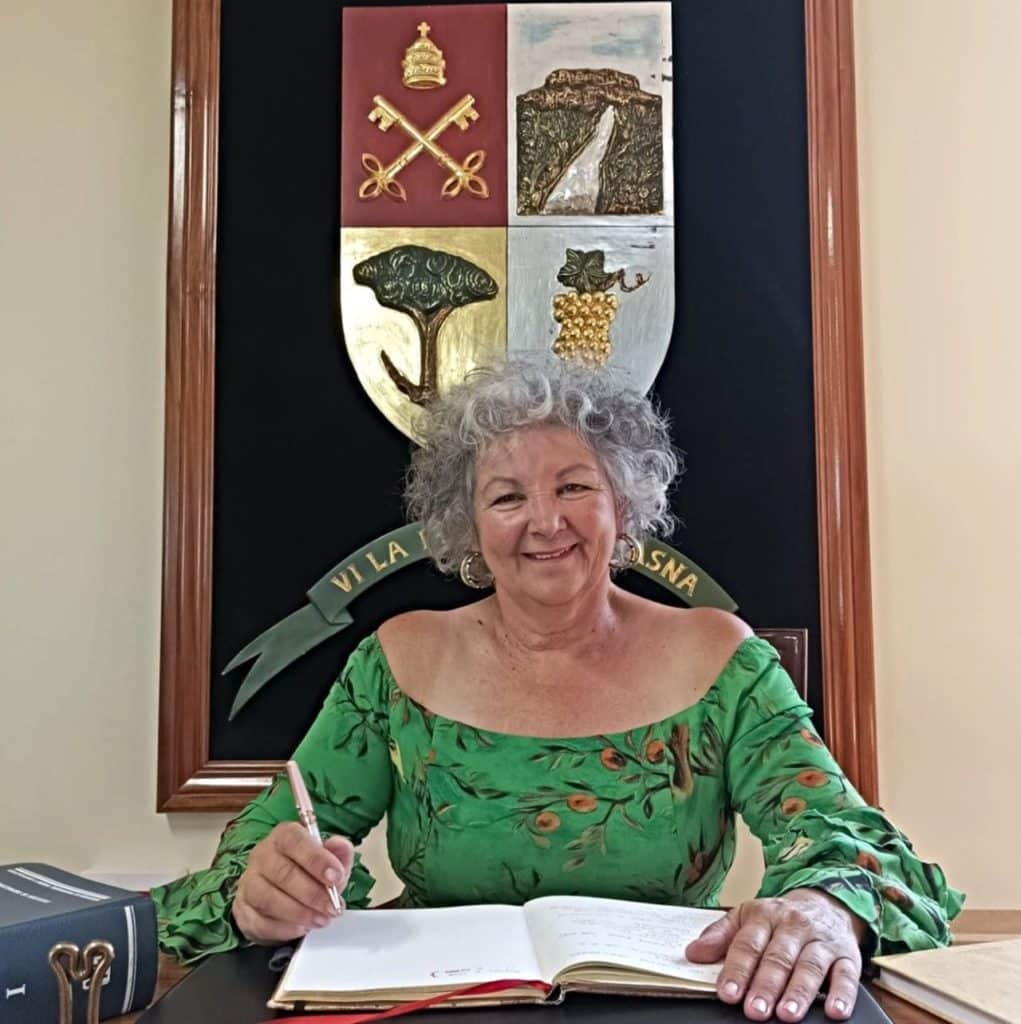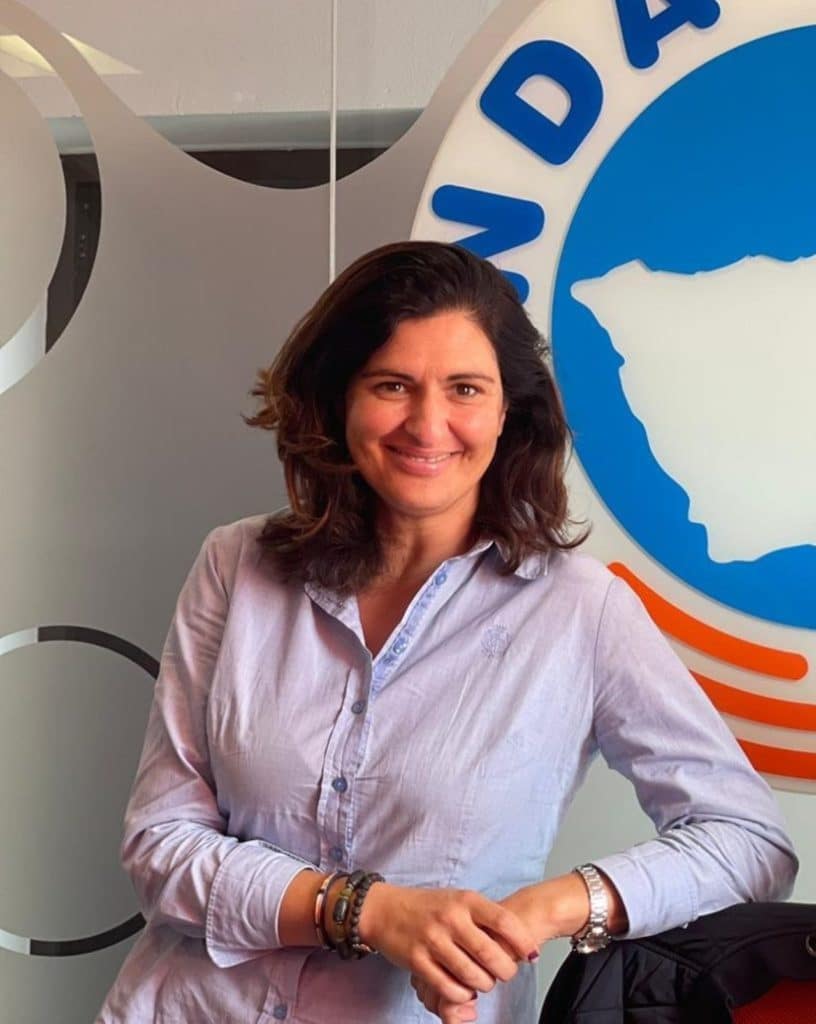12 days after the municipalities are constituted, seven of the 12 in the south of Tenerife could have women at the head of the consistories, more than double what will happen in the north of Tenerife. Specifically, there are two women who will revalidate the baton of command on the 17th, having won with an absolute majority in the 28M elections: Mari Brito, in Candelaria and Agustina Beltrán, in Vilaflor de Chasna. Both from the PSOE.
To these two should be added as safe, despite being the second most voted at the polls, Ana Dorta, in Guía de Isora, after the pact signed between CC and PP (11 councilors) to unseat the socialist Josefa Mesa, the most voted (10), and the young Fátima Lemes Reverón (PP), after the approval of CC and Más Arona to a tripartite that adds 14 councilors, which José Julián Mena could not reach to renew the Aronera Mayor’s Office.
The doubts are centered on Granadilla, Arico and Güímar, where the most voted candidates were those headed by Jennifer Miranda (PSOE), Olivia Delgado (PSOE) and Carmen Luisa Castro (PP), although it is possible that they will be relegated back to the opposition, where they have been this last term, despite the fact that the socialist Delgado began governing with Primero Arico until this party made a motion of no confidence, the second suffered by the PSOE senator. The other five southern municipalities will have a man in the Mayor’s Office, since they managed to revalidate the absolute majority: Emilio Navarro (Santiago del Teide), José Miguel Rodríguez Fraga (Adeje), Arturo González (San Miguel de Abona), Luis Javier González Delgado ( Fasnia) and Juan Ramón Martín (Arafo).
The safe ones
Mari Brito, not without suspense, managed to revalidate as mayor of Candelaria, by repeating the number of councilors (11) of 2019, winning in all the electoral tables of the municipality except in Rubén Marichal (Barranco Hondo), where the Popular Party prevailed, that despite renewing a good part of its electoral list, with Jacobo López as headliner, it added up to six councilors, once again becoming the main opposition party and the only one with its own municipal group, in addition to the socialist one, which will govern. New debacle for Coalición Canaria, which despite having the spokesperson for Neighbors for Candelaria in its ranks, is only capable of repeating two acts, again with Ángela Cruz as the poster. In eight years, the nationalists, who governed the municipality in the 1990s, have gone from sharing government with the PSOE, with five councilors, to not even having their own group in plenary. The same debacle for United Yes We Can. In the two previous elections, with Mayca Coello as the visible head of Sí se puede, he was able to obtain three and two councilors. Now, incorporating Izquierda Unida and Podemos, they have only achieved the act of Lourdes Móndejar. The novelty in the Candelariero Consistory will be the presence of the Vox councilor, while Ciudadanos and the already mentioned Neighbors for Candelaria disappear.
Agustina Beltrán repeats her third term in Vilaflor de Chasna, where the same numbers are repeated again, five councilors for the PSOE and four for the Canary Coalition. The PP appeared on this occasion and only obtained 22 votes, while Vox barely added 16, little more than those that appear on its list, if they were all registered in the municipality.
If Mari Brito and Agustina Beltrán have managed to repeat as mayors, thanks to their absolute majorities, the same is not the case with Ana Dorta and Fátima Febles. The first already confirmed on Friday the pact with Carlos Álvarez (PP) to unseat Josefa Mesa from the Mayor’s Office, after 28 years of socialist government in that municipality, the same as Pedro Martín and Héctor Gómez. It has been one of the biggest surprises of the 28M elections. CC and PP will govern with 11 councilors for 10 the PSOE.
As for Fátima Lemes Reverón, despite achieving only five councilors, the same as Clari Pérez (CC), but with 74 more votes, she will become mayor on the 17th, after gaining the support of the nationalists and +Arona, the party created by the socialist councilors who resigned to continue being them when the party presented José Julián Mena as a candidate, the loser of these elections despite being the winner of them, but with only eight councilors, six less than what he obtained in 2019 , before the municipal group broke in two and created a crisis, with the loss to the PSOE of the third most populous municipality in Tenerife and where people vote the least, barely 38 out of 100 census takers.
Although the pact has not been signed, Arona will have its first mayor on the 17th, Fátima Lemes, although it could also be Clari Pérez and Dácil León if a time-sharing agreement is finally reached that someone has put on the table. Vox, with two, and Nueva Canarias, with one mayor, make up the Aronero Council.
most voted
Three women who were already the most voted in 2019 face June 17 with the same concern as then, seeking a pact to be able to govern, by not obtaining an absolute majority. They are Olivia Delgado, in Arico; Jennifer Miranda, in Granadilla de Abona; and Luisi Castro, in Güímar. But contrary to what happened then – Olivia managed to reach an agreement, but six months later they passed a motion of censure on her – the three have a good chance of becoming municipal councilors.
Jennifer Miranda needs two councilors to obtain a majority, which goes through the two that the PP has, since an agreement with the two from Vox would not be understood. If Marcos Antonio Rodríguez does not agree with Miranda, which would be his wish, due to the CC-PP pacts at the regional and insular level, the current mayor, the nationalist José Domingo Regalado, would still lack a mayor, who would have to look for him in Vox , either with the support or with the abstention of the extreme right. Jennifer Miranda could also be mayor with the abstention or the vote itself of the PP and Vox. This being the case, everything is yet to be decided in Granadilla de Abona.
Something similar happens in Arico, where the current CC-PP pact only adds five mayors to six for the PSOE. Arico Somos Todos decides, a party born from a neighborhood platform led by José Luis Hervella, who has stated that he will not support “those who have misgoverned the municipality in recent years.” If he attends to this opinion, it would be logical to think that on the 17th they would vote for himself, which would give Olivia Delgado the mayor’s office. But in Arico surprises are always the order of the day, and it already happened in 2015 with the nationalist Elena Fumero.
In Güímar, the popular former mayor Luisi Castro won again, with three more councilors than in 2019 -there were four more at stake than then-, reaching nine, two less than the absolute majority, which is presumed very far because although it has the vote of Carlos Llarena (NC), not so with that of Nayra Caraballero (United Yes We Can). At the island level, work is being done for the CC (five councilors) to form a government with Luisi Castro, as in 2015, but personal disagreements and complaints in court complicates the reissue of that pact, so the PP could govern in a minority. For the CC to govern again with the PSOE (he repeated five councilors and lost 500 votes), it would be necessary for United Yes We Can to support them, something that this party has never done with the nationalists. But it is already known that in Güímar everything is possible, although on this occasion a PP-PSOE pact like 12 years ago is literally impossible.





















